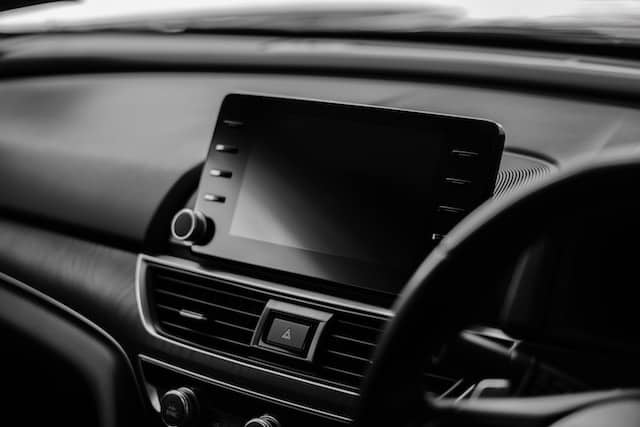Why Don’t Cars Have Built In Dashcams?
Have you ever wondered why most cars don’t come with built-in dashcams? It seems like a no-brainer, right? With the increasing popularity of dashcams among drivers, it’s surprising that car manufacturers haven’t jumped on the bandwagon. However, there are several factors to consider when it comes to implementing dashcams into cars.
In this article, we will explore the cost considerations, safety and liability concerns, consumer preferences and customization options, as well as privacy and legal issues surrounding the inclusion of built-in dashcams in cars. By understanding these factors, we can gain insight into why car manufacturers have been hesitant to integrate this technology into their vehicles.
When it comes to adding any new feature to a car, cost is always a major consideration. Building in dashcams would require additional hardware and software installations in each vehicle, which could significantly increase manufacturing costs. Car manufacturers must carefully weigh the potential benefits against the added expenses involved in incorporating dashcams into their production process. Additionally, there would also be ongoing costs associated with maintenance and updates for these integrated cameras.
Cost Considerations: The Expense of Implementing Dashcams
The lack of built-in dashcams in cars can be attributed to the high costs associated with implementing such technology. While dashcams are becoming increasingly popular among drivers for their ability to provide video evidence in case of accidents or other incidents, the cost of integrating these devices into vehicles is a major barrier.
The installation and integration process would require significant investment from car manufacturers, not only in terms of hardware but also software development and testing. Additionally, there would be ongoing expenses related to maintenance, updates, and customer support. These costs would ultimately be passed on to consumers, making cars with built-in dashcams more expensive than their counterparts without this feature.
Moreover, as dashcam technology continues to evolve rapidly, car manufacturers might hesitate to invest heavily in a specific solution that could quickly become outdated. Therefore, while the demand for built-in dashcams is rising, the high costs currently associated with implementing them remain a significant obstacle in making them a standard feature in all cars.
Check out the Best Dash Cam for Volvo XC60, XC90 & XC40: [Detailed Reviews].
Safety and Liability Concerns
Due to concerns regarding safety and liability, it remains uncommon for vehicles to come equipped with integrated dashboard cameras. Manufacturers and regulators are cautious about the potential risks associated with dashcams, as they can be distracting to drivers and may compromise their focus on the road.
Additionally, there are concerns about privacy and data protection, as dashcams constantly record video footage that could potentially capture sensitive information or be misused. From a liability standpoint, there is also the issue of who would be responsible for maintaining and reviewing the footage in case of accidents or legal disputes.
These concerns have led car manufacturers to prioritize other safety features over integrating dashcams into their vehicles. However, with advancements in technology and increasing demand from consumers for added protection on the roads, it is possible that we may see more cars equipped with built-in dashcams in the future.
Consumer Preferences and Customization Options
With increasing demand and advancements in technology, it’s possible that more vehicles will soon offer customizable options to cater to consumers’ preferences. This includes the option of having a built-in dashcam.
As consumers become more aware of the benefits of having a dashcam, such as providing evidence in case of accidents or thefts, they are beginning to prioritize this feature when purchasing cars. Additionally, some drivers may have specific requirements for their dashcams, such as higher resolution or additional features like GPS integration.
By allowing consumers to customize their vehicles with built-in dashcams, car manufacturers can provide a tailored experience that meets individual preferences and increases customer satisfaction. Moreover, customization options can also extend beyond just the dashcam itself, enabling drivers to personalize other aspects of their vehicle’s technology and safety features.
Ultimately, offering customizable options not only addresses consumer demands but also presents an opportunity for car manufacturers to differentiate themselves in a competitive market while increasing overall safety on the roads.
Further Reading: The Best Dash Cams for BMW (3, 4, 5 Series, X3, X5): Our Picks
Privacy and Legal Issues
Imagine the peace of mind you’ll have knowing that your privacy and legal rights are protected when it comes to using dashcams in your vehicle.
Privacy concerns have been a major obstacle in integrating built-in dashcams into cars. Many people worry about their personal information being recorded and potentially shared without their consent.
Additionally, there are legal issues surrounding the use of dashcam footage as evidence in accidents or other incidents. Laws regarding consent, recording in public spaces, and the admissibility of such footage vary from jurisdiction to jurisdiction, further complicating the matter.
Automakers must navigate these complex privacy and legal landscapes before implementing built-in dashcams to ensure that consumers’ rights are respected while still providing the desired benefits of enhanced safety and security on the road.
Potential Future Integration and Adoption
Get ready to experience the seamless integration and widespread adoption of dashcams in your vehicle, revolutionizing the way you drive and ensuring your safety on the road.
As technology continues to advance, it’s only a matter of time before dashcams become a standard feature in cars. Imagine being able to capture every moment of your journey, from scenic drives to unexpected incidents, all with just a push of a button.
Dashcams have the potential to provide valuable evidence in case of accidents or disputes, giving you peace of mind knowing that there’s an objective record of what happened.
Additionally, dashcams can help improve driving habits by providing real-time feedback on speed, acceleration, and other driving behaviors. This not only promotes safer driving practices but also allows for personalized coaching and improvement.
Furthermore, as more drivers start using dashcams, there will be an increased sense of accountability on the roads. This can lead to a decrease in reckless behavior and ultimately result in safer streets for everyone.
So get ready for this exciting future where dashcams become an integral part of every car’s design.
Conclusion
In conclusion, the decision not to include built-in dashcams in cars can be attributed to a variety of factors. Cost considerations play a significant role, as implementing dashcams on a large scale would require substantial investment from car manufacturers. Additionally, safety and liability concerns must be taken into account.
While dashcams can provide valuable evidence in the event of accidents or disputes, there is also the potential for misuse or invasion of privacy. Furthermore, consumer preferences and customization options also come into play. Many drivers may prefer to choose their own dashcam model based on specific features and functionality they desire. By allowing consumers to select their own dashcams, car manufacturers give them more control over their driving experience.
Lastly, privacy and legal issues cannot be overlooked. Built-in dashcams raise questions about data storage and access rights. There are also concerns regarding video recording in public spaces and potential violations of privacy laws. These complex legal considerations make it challenging for car manufacturers to integrate dashcams seamlessly into vehicles.
While built-in dashcams may not be widely adopted at present, the future holds promise for increased integration as technology advances and regulations evolve. As costs decrease and safety standards improve, we may see more cars equipped with factory-installed dashcam systems in the coming years. Ultimately, it will depend on addressing these various challenges while meeting consumer demands for both convenience and protection on the road.






